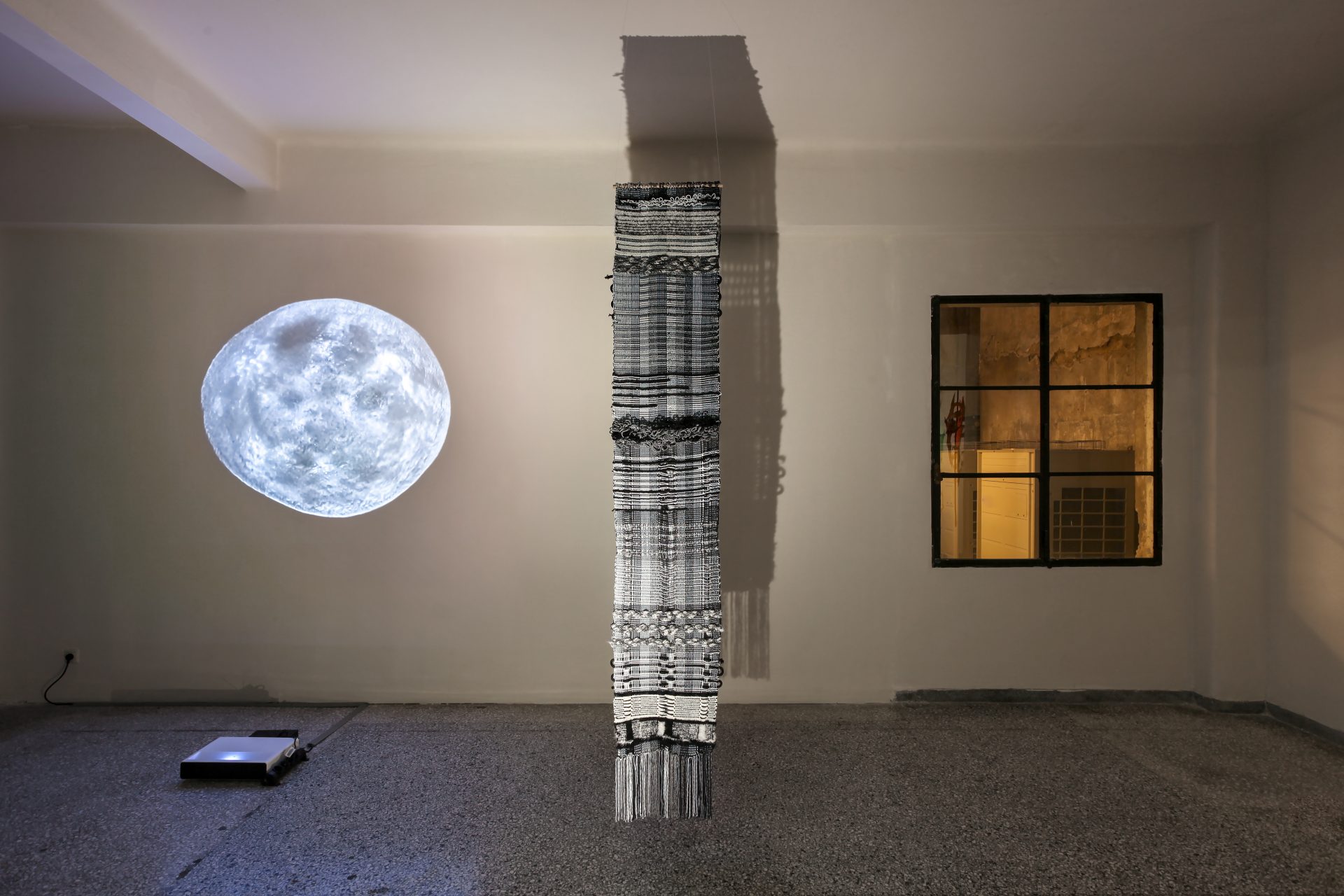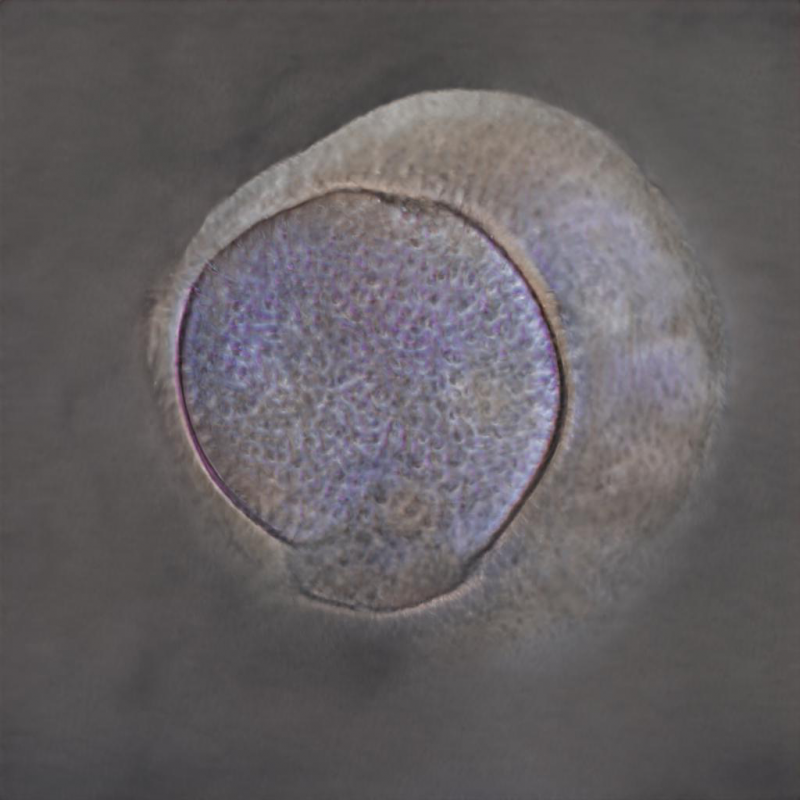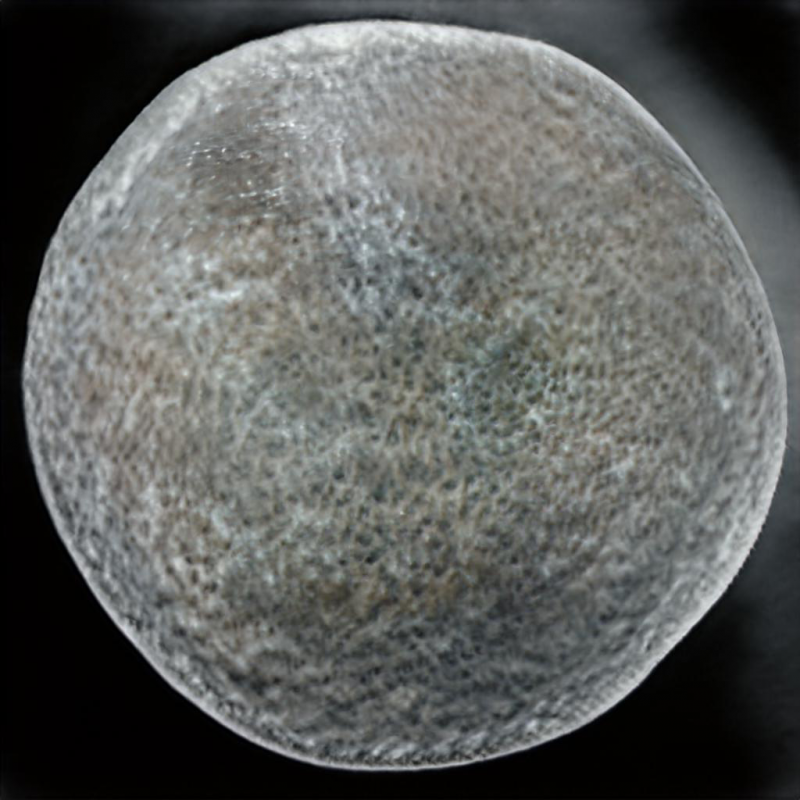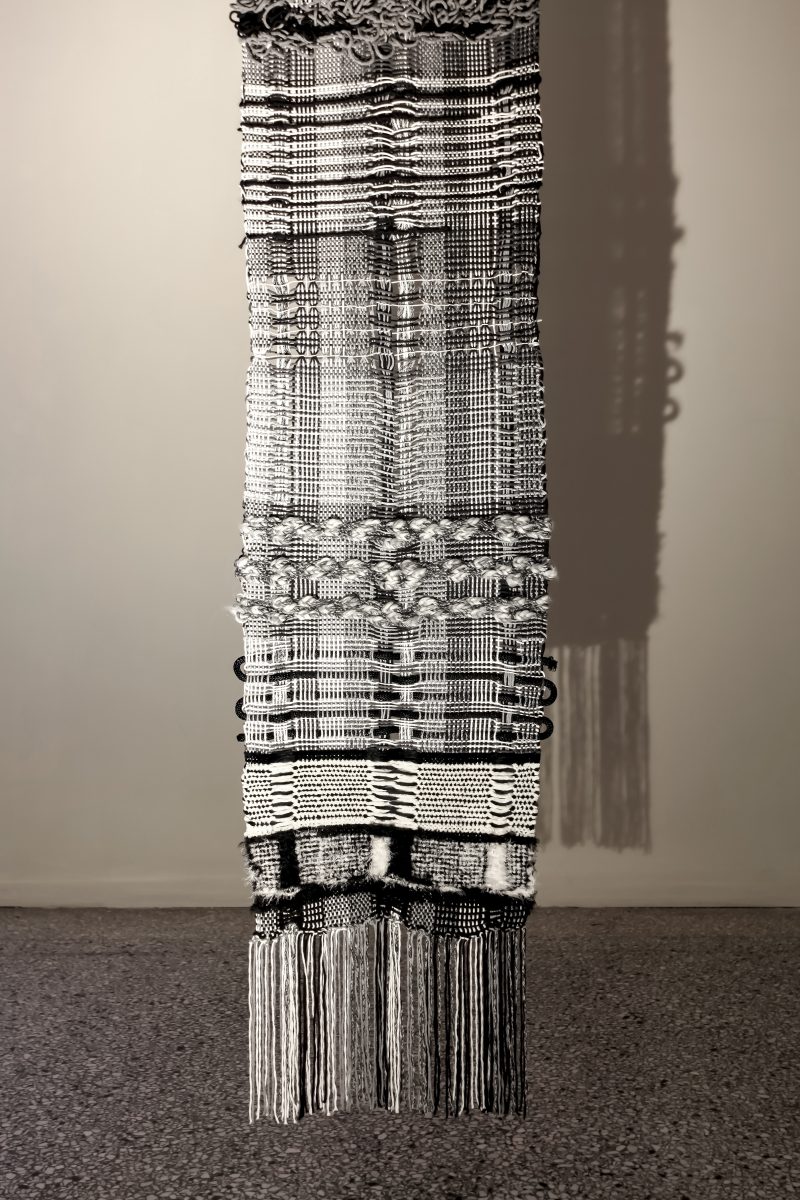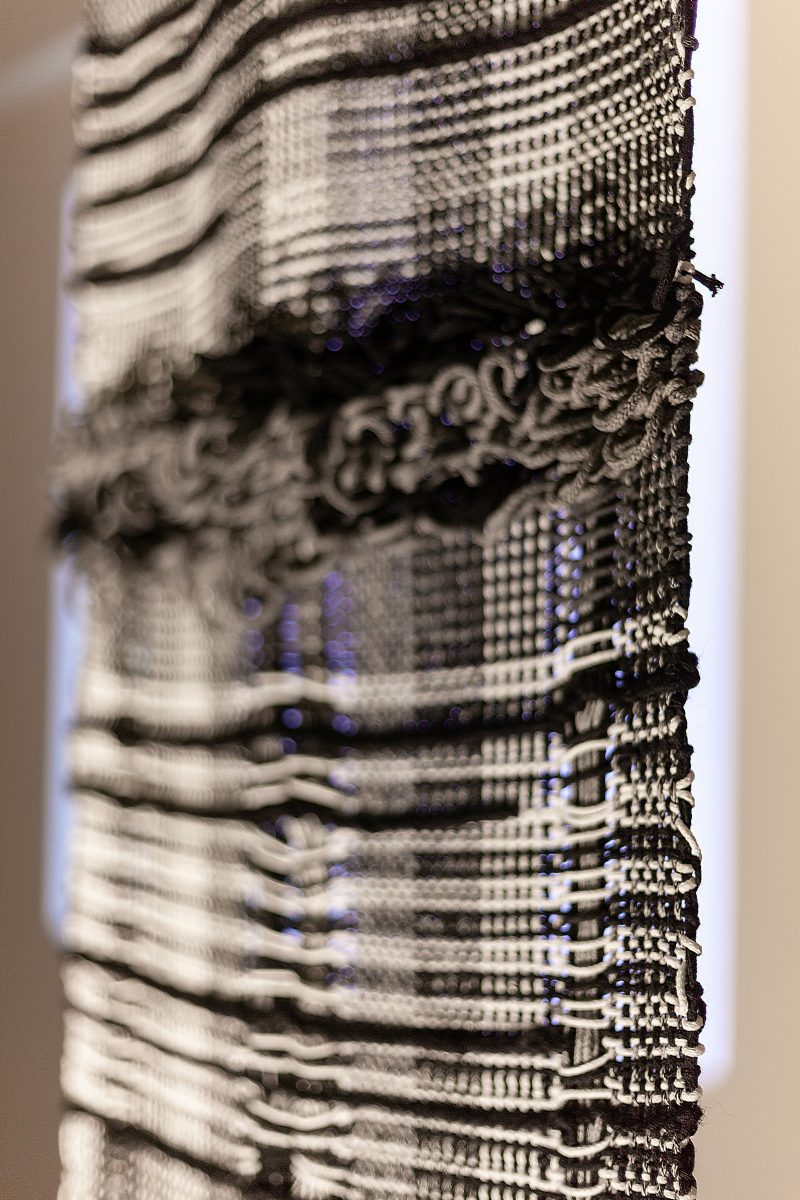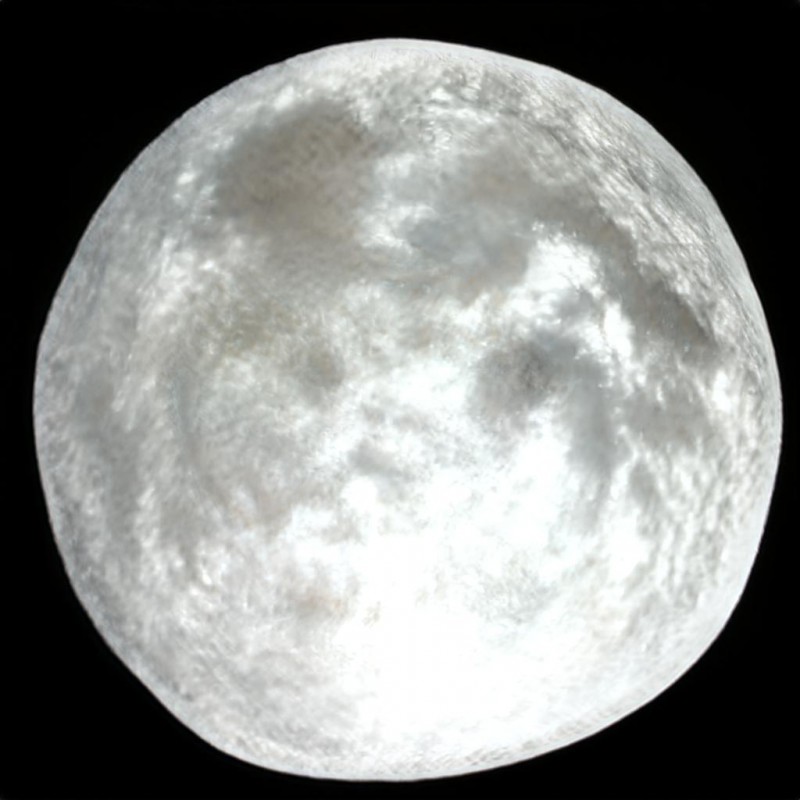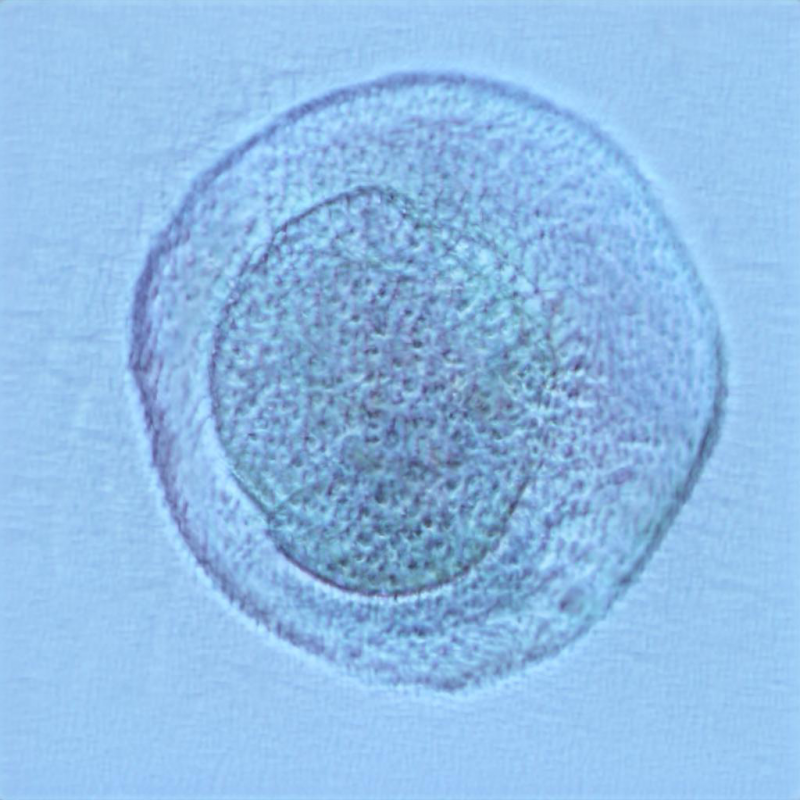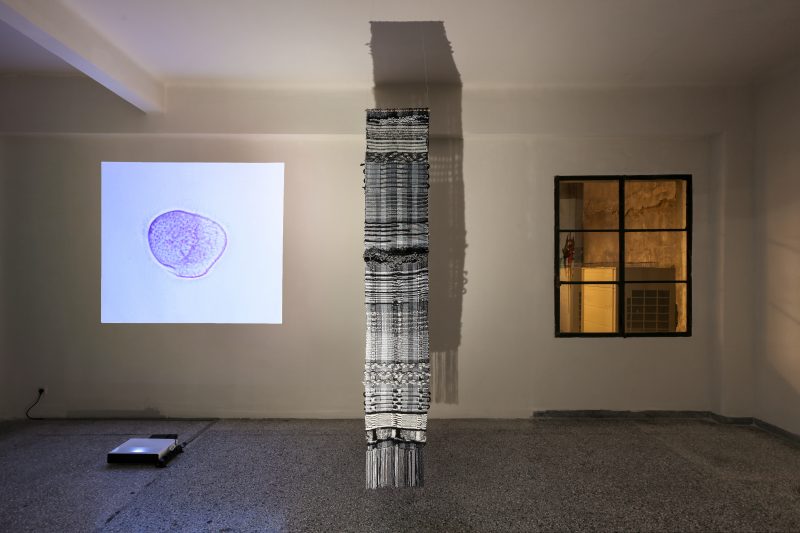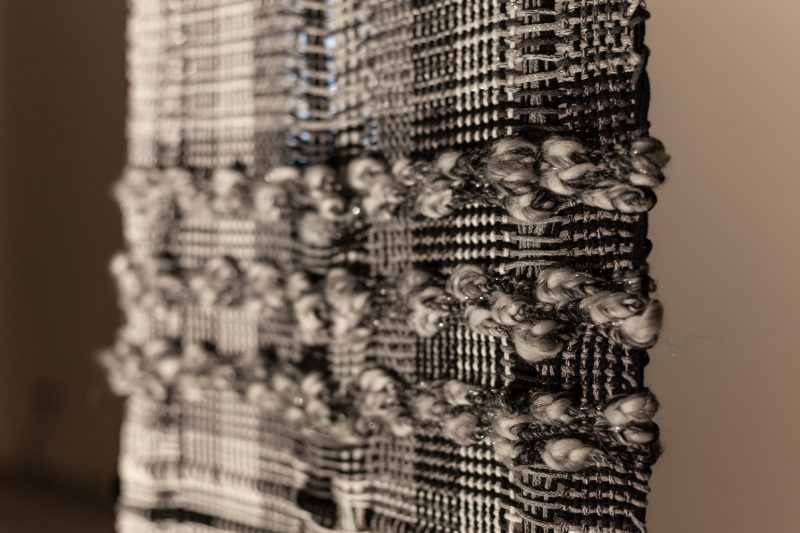In Vivo | In Vitro | In Silico
In Vivo | In Vitro | In Silico explores the emerging role of machine learning (AI) in fertility treatments, focusing on the classification and selection of human oocytes. The way this proceed nowadays, oocytes are categorized based on their potential to develop into embryos, with algorithms trained on diagnostic imaging data. Due to the limited availability of real-world data, synthetic datasets are used, where images of oocytes are algorithmically generated to simulate real ones. Machine vision evaluates the texture of oocyte cytoplasm through grayscale analysis of lab images, identifying quality markers that determine their viability.
The project consists of a video and a woven textile. In the video, a generative adversarial network trained on images of real oocytes and the moon simulates synthetic oocytes, blurring the lines between biological reality and digital representation. This visual ambiguity highlights the overlap between the algorithm’s perception and the broader cultural implications of associating the female body with its reproductive potential. The woven textile represents the classification of the artist’s own oocytes, visualizing their texture as interpreted by the algorithm. Data on the oocytes’ quality is translated into a tactile medium, where the weave’s patterns and color shifts encode information about their potential success.
Through these elements, the project raises critical questions about the intersection of technology, biology, and identity. It examines the influence of deep learning algorithms on the female body, shifting the discourse around reproductive value from biological criteria to mathematical predictions. The artist reflects on the ethical implications of such classifications, questioning how machine-mediated sorting of life potential redefines human agency and identity. By transforming data into tangible and visual outputs, In Vivo | In Vitro | In Silico invites the audience to reconsider how technological interventions shape our understanding of life, value, and the female experience.
Scientific supervision: Anna Agapaki
Lab Photography: Vana Gota
photos: Mariana Bisti
dimensions
45cm x 230cm , 3’30’’, 1024 x 1024
curator
Katerina Gkoutziouli, Daphne Dragona
production
Under the auspices and with the financial support of the Hellenic Ministry of Culture and Sports
organisers
VEKTOR Athens
venue
Romantso
year
2021
acknowledgements
Anna Agapaki, Vana Gota, Thanos Eleftherakos
